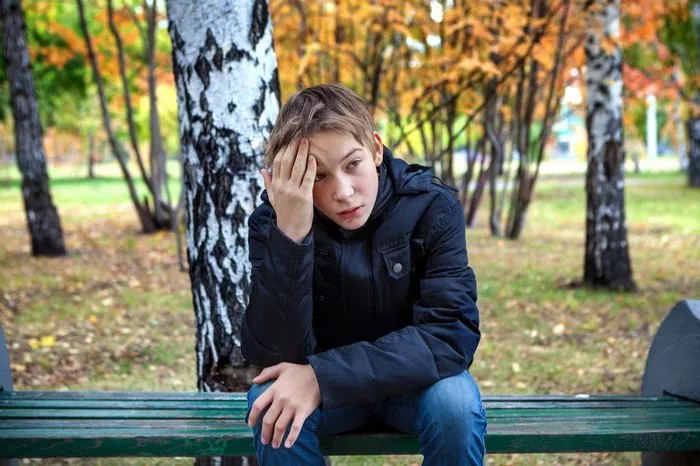Childhood anxiety is a growing concern for many families. Parents often wonder if their anxious child will naturally “grow out of it” with time. While some children do become less anxious as they mature, others may continue to struggle unless they receive proper support. This article explores whether children typically outgrow anxiety, what factors affect the outcome, and how parents can best support their child.
Understanding Childhood Anxiety
What Is Childhood Anxiety?
Anxiety is a normal human emotion. For children, it can arise in response to changes, unfamiliar environments, or fears of separation. However, when anxiety becomes chronic, intense, and interferes with daily life, it may be classified as an anxiety disorder.
Common anxiety disorders in children include:
- Generalized anxiety disorder (GAD)
- Separation anxiety disorder
- Social anxiety disorder
- Specific phobias
- Panic disorder
- Selective mutism
When Anxiety Becomes a Concern
Mild anxiety is a normal part of development. It’s common for toddlers to be afraid of strangers or for school-aged children to worry about tests. However, when anxiety affects a child’s ability to function at home, school, or socially, it should be addressed.
Can Children Outgrow Anxiety?
The Short Answer: It Depends
Some children do naturally become less anxious with age, especially when their fears are developmentally appropriate and gradually fade as they grow in confidence and experience. For others, anxiety may persist into adolescence or adulthood, particularly if it goes untreated.
Factors That Influence Whether Anxiety Persists
Several factors affect whether a child is likely to outgrow their anxiety:
1. Severity and Type of Anxiety
Children with severe anxiety or multiple anxiety disorders are less likely to simply outgrow it. For example, a child with a mild fear of the dark may overcome it over time, but a child with social anxiety disorder may continue to struggle into their teen years and beyond without intervention.
2. Genetic and Biological Influences
Anxiety often runs in families. If a parent or sibling has an anxiety disorder, a child may be more genetically predisposed to experiencing it too. Brain chemistry and temperament also play a role.
3. Environmental Triggers
Stressful environments—such as homes with high conflict, frequent moves, or exposure to trauma—can make it harder for a child to overcome anxiety naturally.
4. Parental Response
Children whose parents model healthy coping strategies and provide supportive guidance are more likely to develop resilience. Overprotective or overly critical parenting, on the other hand, can increase anxiety.
5. Access to Early Support
Early intervention through counseling, therapy, or school support greatly improves a child’s chances of managing and eventually reducing anxiety symptoms.
The Risks of Waiting It Out
Why “Outgrowing” Anxiety Isn’t Always a Safe Bet
While it may seem hopeful to assume your child will “grow out of it,” untreated anxiety can lead to long-term problems, such as:
- Poor academic performance
- Difficulty forming or maintaining friendships
- Avoidance of important experiences (e.g., school, sports, events)
- Increased risk of depression and substance abuse in teens and adults
Anxiety Can Morph Over Time
Even if a child appears to overcome one fear, anxiety may shift to a different area. For instance, a child may outgrow separation anxiety only to develop test anxiety or social anxiety in later years. This pattern underscores the importance of addressing the root causes of anxiety rather than waiting for symptoms to disappear.
Helping Your Child Manage Anxiety
Encourage Open Conversations
Let your child know it’s okay to feel anxious and that you’re there to help. Avoid shaming or dismissing their fears. Validating their feelings builds trust and opens the door to healthy communication.
Teach Coping Skills
Help your child learn tools like:
- Deep breathing
- Visualization techniques
- Mindfulness exercises
- Journaling or drawing
- Positive self-talk
These skills empower children to manage their anxiety in healthy ways.
Create a Supportive Environment
Consistency and routine provide a sense of safety. Ensure your child gets enough sleep, eats well, and has time to relax. Praise their efforts rather than just outcomes.
Encourage Gradual Exposure
If your child is avoiding anxiety-triggering situations (e.g., public speaking, social events), gently encourage small steps toward facing those fears. Support and praise their progress without forcing too much too fast.
Seek Professional Help When Needed
If anxiety is interfering with your child’s daily life, consider working with a:
- Pediatrician
- Child psychologist
- School counselor
- Licensed therapist
Evidence-based therapies like cognitive-behavioral therapy (CBT) are especially effective in treating child anxiety.
Signs That Professional Support Is Needed
While some anxiety is normal, here are signs it may be time to seek help:
- Anxiety lasts for months and is not improving
- Your child avoids school or social situations
- Frequent stomachaches or headaches without medical cause
- Nightmares or sleep difficulties
- Panic attacks or intense fears
- Persistent sadness, irritability, or withdrawal
Early help can prevent anxiety from becoming a lifelong challenge.
Long-Term Outlook for Anxious Children
With Support, Children Can Thrive
The good news is that many children with anxiety go on to lead happy, successful lives—especially when given the right tools early. Even if they don’t “outgrow” anxiety in the traditional sense, they can learn how to manage it effectively.
Focus on Progress, Not Perfection
Recovery from anxiety isn’t about eliminating fear altogether—it’s about helping your child function confidently despite their worries. Celebrate progress, no matter how small.
Building Resilience for the Future
Children who learn to manage anxiety often grow into resilient, empathetic adults. By facing fears early, they develop life-long emotional skills.
Conclusion
So, will your child outgrow their anxiety? Maybe—but maybe not entirely, and that’s okay. What matters most is not whether the anxiety disappears but whether your child gains the skills and support needed to thrive. Don’t wait for anxiety to go away on its own. Through early recognition, open communication, coping strategies, and—if necessary—professional intervention, your child can learn to manage anxiety and lead a confident, fulfilling life.
You Might Be Interested In:

